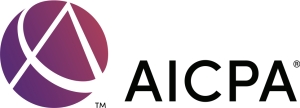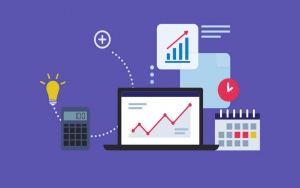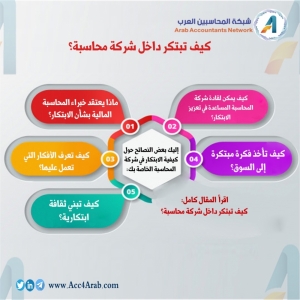عرض العناصر حسب علامة : شركات المحاسبة
5 استراتيجيات للذكاء الاصطناعي يمكن للمحاسبين استخدامها
تقدم AICPA مجموعة أدوات التخطيط الاستراتيجي لشركات المحاسبة
أصدر المعهد الأمريكي للمحاسبين القانونيين (AICPA) الذي يمثل AICPA و CIMA مجموعة أدوات التخطيط الاستراتيجي PCPS، وهو مورد مصمم لمساعدة شركات المحاسبة في تحويل نموذج الأعمال.
الصين وسويسرا تحققان اعترافا متبادلا بمعايير نظم المراجعة المحاسبية
حققت الصين وسويسرا اعترافا متبادلا بمعادلة معايير التدقيق ونظام الرقابة على مراجعة الحسابات، حسبما ذكرت وزارة المالية الصينية.
أمن البيانات ما الخطأ الذي يمكن أن يحدث
الحقيقة هي أنه عندما يتعلق الأمر بأمن البيانات، لا يوجد شيء اليوم يمكن أن يحميك بنسبة 100٪ من أي هجوم إلكتروني ما لم ينقطع اتصالك بالإنترنت تمامًا.
معلومات إضافية
-
المحتوى بالإنجليزية
Data Security: What Could Go Wrong?
The reality is, when it comes to data security, zero risk does not exist. There is nothing on the market today that can 100% protect you from a cyberattack unless you completely disconnect yourself from the internet.
In 2021, IBM reported that the average size of a data breach is 25,575 records, with each record costing the company $165 on average, and the total cost to a company averaging over $4.24+ million. It is critical that CPA firms implement proactive IT strategies using a multifaceted approach to protect their data security. Before we dig into the preventative strategies to combat threats, we need to understand what methods cybercriminals are taking to try and penetrate systems.
What’s the Cyber Criminal’s End Game?
Cyber criminals have countless reprehensible methods of conducting cybercrime, as noted below:
Send out phishing emails. A phishing scam is when a nefarious source targets consumers by sending them an email which appears to be from a reliable source. The hacker asks the consumer to provide personal identifying information. The hacker then uses the information to invade the consumer’s accounts or to open new accounts.
Collect personal information. The cyber criminal’s goal is to gather personal information to be used for other types of identity theft such as credit card or insurance fraud.
Infect a computer with ransomware. The cybercriminal infects a computer with malicious malware which prevents access to files, systems, or networks, and requires payment of a ransom for their return.
Access further accounts within an organization. Account takeovers can morph from a personal attack on a singular computer as an entry to compromise an entire system or network.
The threat of account takeovers continues to evolve as the number of scenarios cyber criminals can use to gain access to victim’s accounts also evolves. It is important for C-suite executives and tech experts to understand their cybersecurity vulnerabilities.
Why Would Global Cybercriminals Target CPA Firms?
CPA firms are prime targets because of the sensitive, confidential, financial information accounting firms amass. Hackers target CPA firms for explicit information and then use the data to steal assets, ransom it, or sell the data to the highest bidder.
Obtain confidential, personal data. Cybercriminals seek client data from CPA firms such as birthdays, Social Security numbers, and other personal information. The data is used to target and steal from specific clients or to sell the data to other criminals who specialize in identity theft.
Attain financial information. Cyberattacks on accounting firms seek specific account numbers, tax records, credit card information, and employee identification numbers.
Gain tax records. Cybercriminals file fraudulent tax returns from information obtained from CPA firms. They steal tax returns and use the information for additional identity theft.
How to Minimize your Risk of a Cyberattack
It is imperative that CPA firms, regardless of size or composition, have vigorous cybersecurity protections in place. The risk of cyberattacks is disproportionally higher for smaller and medium sized organizations, who tend to be much more reactive than proactive. Below are mitigating steps to help protect your firm from possible cyberattacks:
Have a good backup strategy. Hackers tend to want to go for your backups first, making you more vulnerable during the attack. CPA firms should have multiple backups using different technologies and be physically removed from the network, so in case of a malware infection, the backup data does not become infected.
Implement multi-factor authentication for everything. By requiring multiple factors to prove your identity during the login process, you can drastically reduce the chance of unauthorized access.
Train employees about cybersecurity risks. Educating employees about cybercrime such as phishing, malware, and ransomware attacks is an effective strategy. CPA firms should create a culture of consistent security awareness to reduce the risk of cybersecurity breaches caused by human errors.
Use Advanced Threat Prevent Technologies. Leverage Next Generation Antivirus (NGAV), Endpoint Telemetry Data, DNS Filtering, Intrusion Prevention Systems, Reputation Based Threat Prevention, Data Encryption – the more the better! These security technologies learn users’ habits and daily activities using behavioral detection, machine learning algorithms, and exploit mitigation so known and unknown threats can be anticipated, blocked, and immediately prevented.
Patch all systems. Focus on patching any and all known, exploitable vulnerabilities.
Store data and information in encrypted databases. Storing data in an encrypted database can deter cybercriminals from accessing the information.
Prepare your organization. Have a cyber incident response and business continuity plan ready, to ensure critical functions and operations can remain running if technology systems are disrupted. If your IT systems go down, how will day-to-day account management and communication continue with personnel and clients? Make sure important contacts are up to date & test it regularly!
Accounting firms are prime targets for cybercrime for specific reasons due to all the sensitive, confidential, and potentially lucrative information they have in their systems.
How CPA Firms Can Shift their Risk
Accounting firms have significant responsibilities to protect their clients’ information from potential global cybercriminals. Adhering to the CISA guidelines is an important, proactive plan for CPA firms. More specific cybersecurity strategies are examined below:
Review cybersecurity insurance. C-suite executives should determine if specific cybercrime insurance coverage includes state-sponsored cyberattacks such as what might be initiated by outside threats. Check for 1st person vs 3rd party insurance coverage, ransomware coverage, and employ an attorney who understands cybersecurity review your cyber insurance coverage.
Encourage a “security mindset” in employees. Require multifactor authentication, training on data security policies and procedures, and remind personnel that phishing is still the most common cyberattack modality.
Enlist the help of IT security professionals. Engage with cybersecurity experts who can help reduce your level of risk through deploying stronger security technologies, preventative solutions, help guide and enforce evolving security best practices. Having a cybersecurity team available 24x7x365 monitoring threats is a great peace of mind.
At the end of the day, cyberattacks can have a detrimental impact to firms. Don’t wait until it’s too late to develop an effective data security plan.
الأتمتة في المحاسبة
نحن نعيش في عالم رقمي، حيث تلعب التكنولوجيا دورًا متزايدًا في كيفية عملنا وحياتنا. بالنسبة لـ CPA أو شركة المحاسبة، يمكن أن تكون مواكبة التطورات الجديدة صعبة.
معلومات إضافية
-
المحتوى بالإنجليزية
We’re living in a digital world, where technology increasingly has a role in how we work and live. For the CPA or small accounting firm, keeping pace with new advances can be overwhelming.
After all, this is a profession where relentless deadlines and recurring tasks are par for the course. Yet it’s that relentless and repeating aspect of accounting work where automation can really shine—and shine a light on a better way to manage the workflow of your business.
4 benefits of automating your practice (or workflow)
Here’s the rub. To many, it seems daunting to consider automating what you do. Isn’t automation too complex and expensive for smaller firms? After all, you likely have proven practices and tools like Excel to keep you on track.
Rather than ceding control, consider automation essential to gaining control and confidence. Whether you are a one-person operation or a small firm with a small team, or a growing firm with contract, full-time and part-time people, and many clients to handle, automation answers the call.
Workflow automation gives accountants and bookkeepers added muscle and quick ROI. With the right tools, you can eliminate inefficient, manual hours required for repetitive tasks and focus on areas of greater impact, like expanding value-added services to clients.
Here are four ways automation can help your practice:
1. Track tasks and productivity with ease
With quarterly filings and year-end closings, punctuated by daily tasks and evolving requirements throughout the year, you are juggling a lot of data all of the time. With automation, you can track every task and every deadline with ease. For example, recurring payroll deadlines should be automated, likewise with tax. If you are recreating monthly tasks or projects, you’re wasting time along with margins (and sanity). Automating your due date creation is essential to being more productive with your resources and your bottom line.
2. Reporting metrics and ROI
Accounting firms are prized for timely, accurate results. Automation can make it so much faster and easier to produce reports, synthesize metrics and analyze data. For example, you should be able to quickly run “done vs due” reports to instantly gauge how well you’re doing against fundamental productivity goals. Again, it is power within to do more with less to streamline your workload and path to ROI.
3. Visibility into employee capacity and choke points
Beyond the more mundane recurring tasks, automation software can provide greater clarity into who’s doing what, who’s next in the workflow, and where any issues or choke points may lie. Oftentimes, having something as simple as a “next week” work view can help you pinpoint upcoming fires—especially today. With so many firms struggling with staffing issues, it is your best bet for insights and answers.
4. Increased collaboration
When everyone on the team works with the same automated tool, you empower the whole team to stay on the right page. The right workflow software will make it easier to share information, connect with others, and collaborate to solve problems and meet critical deadlines for clients.
In my work with accounting and bookkeeping firms of all sizes, I see a lot of diversity in how firms operate, their specialties and vertical focus. Yet there is a common trait I see post-automation. This profession can demand a lot of hours. Too many owners burn the midnight oil to keep all their clients and deadlines and tasks on track. Once they automate, they gain time back.
Some simple math for you to consider. Automation can save on average 30 minutes a day. If your hourly rate is $100/hour, you can realize a savings of $12,000 in your time that can focus on other areas to improve and grow your firm such as marketing, sales, recruiting, and pricing optimization. Think about that.
Your time is your most precious commodity. Use it wisely to manage your practice, serve your clients and grow your firm. Use tools that make you stronger, able to react faster, where you have critical data at your fingertips, not locked in a file cabinet.
With the right workflow software automation in your practice, you gain a valuable asset for reclaiming your time, refocusing on client service and more profitable services, and growing your client base.
4 تحديات تواجه شركات المحاسبة
تخضع العديد من شركات المحاسبة لتغييرات كبيرة حيث أظهرت العديد من التقارير الكيفية التي يمر بها مجال المحاسبة بتغييرات جوهرية، ويجب على شركات المحاسبة تنفيذ طرق جديدة لحل هذه المشكلات
رسالة ماجستير: العوامل المؤثرة على توجه الشركات لاعتماد التطبيق المحاسبية على الإنترنت
هدفت هذه الدراسة إلى دراسة أهم العوامل التي قد تؤثر على توجيه شركات المساهمة العامة العاملة في قطاع غزة اعتماد التطبيقات المحاسبية على الإنترنت، وتقديم نظرة عامة عن مفهوم التطبيقات المحاسبية على الإنترنت، معوقاتها، والإجراءات المستقبلية الواجب اتخاذها من تحسين السياسات الزامية إلى تعزيز قبول واعتماد التطبيقات المحاسبية على الإنترنت.
كيف يغير الذكاء الاصطناعي بشكل أساسي سير عمل شركات المحاسبة
يعد استيعاب الكثير من المعلومات مشكلة لا تنتهي بالنسبة لشركات المحاسبة من مواكبة التدفق المستمر لبيانات العملاء والامتثال والاتجاهات التنظيمية، فضلاً عن الاتجاهات الناشئة في التكنولوجيا والابتكارات الأخرى
معلومات إضافية
-
المحتوى بالإنجليزية
Assimilating information is a never-ending battle for your accounting firms. From keeping up with the constant flood of client data, compliance and regulatory trends, as well as emerging trends in technology and other innovations, the struggle is real.
While no one will argue that investing time and energy into constant monitoring and responding to changes in client data, compliance, and regulatory information isn’t vital, the importance of understanding and responding to technology trends can sometimes be overlooked. However, it is information from emerging solutions that can give your firm the edge when it comes to effectively streamlining and better leveraging the data that is coming into your firm.
There are two key tech trends which, by now, should be on the radar and minds of every accounting leader: migration to cloud-based technology and the adoption of solutions utilizing artificial intelligence (AI). This is because they both, more than any other recent technology have had—and continue to have—profoundly positive and far-reaching effects on the accounting profession.
While much has been written about “getting into the cloud” and a large percentage of accounting firms are working at least partially in it, using web-based platforms to run part of their practice operations. They do so, in tandem or perhaps ahead of their business clients, many of whom are transitioning to the cloud.
The research and consulting firm Gartner names cloud computing “one of the most disruptive forces of IT spending” and attributes its influence through 2020 on more than $1 trillion in technology spending. This trend is expected to continue for at least the next decade.
In contrast, AI is still a term which seems foreign to many accounting professionals, even though the technologies that it encompasses such as machine learning and OCR have been widely used for years. If the idea of AI still conjures up images of futuristic applications which may never become practical for your firm, it is important to shift your mindset in order to be prepared for the future benefit these technologies can bring your firm.
For example, AI technologies can eliminate many of your firm’s administrative and repetitive task workflows given its ability to make it possible for machines to learn from experience, adjust to new information, and use it to accomplish human-like tasks. Some applications you may already be using which incorporate AI include expense management and accounts payable platforms.
AI also makes it possible for large volumes of data to be processed and analyzed quickly, freeing up staff to do more value-added engagements. A recent study by Big Four firm PwC reported that 72 percent of business decision-makers believe that using technologies with AI lets their employees focus on more meaningful and creative work.
In addition to speed and agility when processing information, and increasing the availability of strategic insights from the information extracted, AI also adds additional security for the storage of sensitive financial data. This is another significant reason that this particular development will continue to grow in importance across the profession.
ماذا يمكن أن تفعل الأتمتة للشركات المحاسبية
في جميع الصناعات، تواجه الشركات مهامًا متكررة ضرورية ولكنها تستغرق وقتًا طويلاً وينطبق الشيء نفسه على العاملين في مهنة المحاسبة. إذن، ما الذي يمكنك فعله لتخفيف العبء؟
معلومات إضافية
-
المحتوى بالإنجليزية
Across all industries, businesses will run into necessary yet time-consuming repetitive tasks. The same is true for those in the accounting industry. So, what can you do to ease the burden? Well, thankfully there is an answer—automation. Research shows that at about 60% of jobs, about 30% of the activities completed can be automated. Industry trends show that accountants are already adopting automation into their workflow. According to the CaseWare 2022 State of Accounting Firms Trends Report, 51% of those surveyed use automation software regularly to minimize time spent on routine tasks.
What can automation do for your firm?
Automating your business allows you to offload manual and repeatable tasks through technology with defined conditions and rules for each process. Let’s take a look at a few tangible benefits automation can bring to your accounting firm.
Successfully raise prices
A CPA.com report on business model trends for accounting advisory services found that automation has been tied to firms favorably billing higher fees for their service.
“Automation can create new opportunities for accounting firms to charge higher rates—if their clients understand the value that technology and automation bring to their services. Automation technology enables accounting firms to better deliver on their experience and expertise, focus on servicing accounts, and provide strategic guidance and insight to their clients,” the report stated.
Accounting firms that utilize automation are about 3.5 times more likely to successfully raise prices when they remain transparent with clients about the benefits of automation, according to the research.
Implementing automation technology at your accounting firm allows staff members to shift the burden of administrative tasks to a software solution instead. This not only frees up their time for more important work, it also ensures the integrity of the task is maintained as human error can be eliminated from these automated processes. Automation can help you effectively increase the value you’re bringing to clients.
Those who identified as “highly automated” in the CPA.com study also consistently reported undergoing challenges less strongly than those who don’t take as much advantage of automation.
Streamline workflow
Automation can lead to firm-wide increases in productivity and a decrease in errors. There are many processes that can be automated at your accounting firm, such as sending reminders, task updates, and tracking progress on assignments—this could ultimately help your firm cut back on time spent completing these manual tasks.
Additionally, removing the burden of these manual tasks from your staff and putting it onto your software system allows employees to focus on higher-value work, which in turn can increase productivity.
Integrating automation into your accounting firm’s workflow can improve organization, decrease errors and optimize efforts of talented staff across the firm. The robust capabilities of workflow automation are also extremely effective as a holistic practice management solution, working across the firm to ensure information is retained and the user experience is simplified.
إنفوجرافيك.. كيف تبتكر داخل شركة محاسبة؟
الابتكار يمكن أن يدفع شركات المحاسبة إلى ما وراء طرق التفكير القديمة والعمليات التي عفا عليها الزمن. إنه يضمن أننا نقدم للعملاء ما يريدون حقًا










